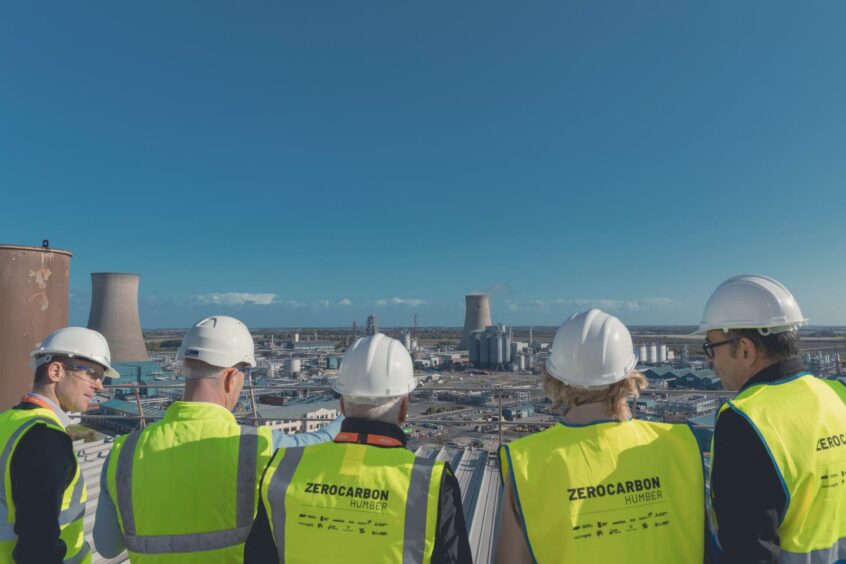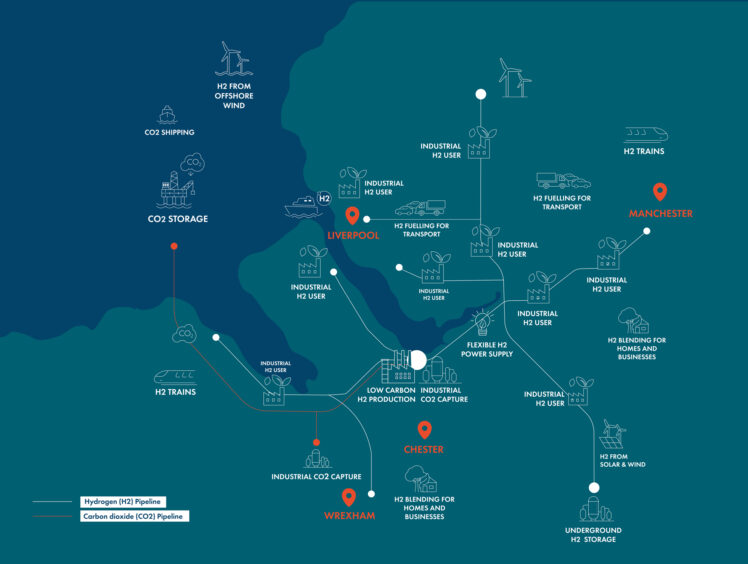
A new study warns that a poor understanding of specialised skills and competition amongst other energy sectors could hamper the UK’s CCUS ambitions.
While Government estimates suggest carbon capture utilisation and storage (CCUS) could support up to 50,000 jobs by 2050, a report by Cogent Skills notes that the availability of talent will act as a “bottleneck” as the sector competes with other industries.
Cogent – a UK strategic body for science and technology skills – prepared the ‘Greenprint’ report to examine the skills requirements and availability of talent for a range of emerging low-carbon industries including hydrogen, CCUS, batteries, fuel cells and nuclear.
Results are based on a range of research, including workshops with 40 industry experts in more than 25 organisations across the sector.
It found “a lack of clarity” over the specific skills and job roles needed to grow each of these industries, but an acute problem in the CCS sector where “there is little information about the current workforce in the UK, its capabilities, and the recruitment needed” to meet future demand.
While the number of full-time employees in the CCUS sector more than doubled between 2014 and 2021, from 300 to 700, it said there remains a “significant gap in the research” around the current UK workforce.
At the same time, Cogent found “few specialised routes” into the industry.
Essential CCUS skills
A tool developed by Canadian researchers and cited in the study suggests the main job types and competencies needed across four main elements of CCUS.
Talent will be needed for the carbon capture phase, requiring an engineering background in automation, mechanical engineering and petroleum technology, as well as operations and maintenance.
CO2 pipeline transmission requires “relatively specialised jobs” and engineering skills in hydraulics and pipelines, as well as chemistry skills to deal with compression and corrosion.
Once sequestered, field operators must have drilling, mechanics and rig servicing experience, as well as engineering roles such in drilling, completion and geoscience.
Finally, the measuring and monitoring phase will require instrumentation technicians, sampling and analysis roles and seismic expertise.
Construction industry vital
The UK government currently intends to store 20-30 million tonnes of CO2 per year by 2030, the bulk of which would be achieved via industrial cluster projects such as the East Coast Cluster, Acorn CCS and HyNet.
This is only set to grow; a recent survey by the Crown Estate found that respondents expected a total of 62 UK projects to be up and running by 2050.
However Cogent highlights that the availability of skills is already an issue. For example, while analysis suggests nearly 50,000 jobs could be created in the Humber area alone through hydrogen and CCS development, it found “a relatively small proportion of school leavers” in the area have the qualifications for specialist technical and practical roles.
Additionally, the bulk of these jobs would sit within the construction industry, which had its own skills gap of over 200,000 people as of July 2021.
“A shortage of construction workers could mean the demand for science and engineering-based operations, maintenance and R&D staff will be significantly delayed,” the report adds.
Cogent Skills’ chief executive Justine Fosh said: “CCUS is seen as a necessary solution to reduce emissions in heavy carbon-emitting sectors which use high temperature industrial processes and long-distance transport.
“But while there is no clear plan to develop a workforce to support future CCUS facilities, the sector is under pressure to meet the ambition of capturing up to 30Mt of CO2 per year by 2030.”
Ms Fosh said the report would mark the start of a “conversation” around the specific skills needed to grow the various sectors.
However, she also warned that: “Unless industry can access the next generation of talent – including engineers, scientists, technicians and operators – any plan for a just transition will fall short.
“That means harnessing the energy and enthusiasm of younger people to tackle the climate crisis by showing how science and technology is a route to making meaningful change, as well as a rewarding career.”
Meanwhile, similar studies have found similar challenges in building a domestic CCS supply chain.
Recommended for you

 © HyNet
© HyNet